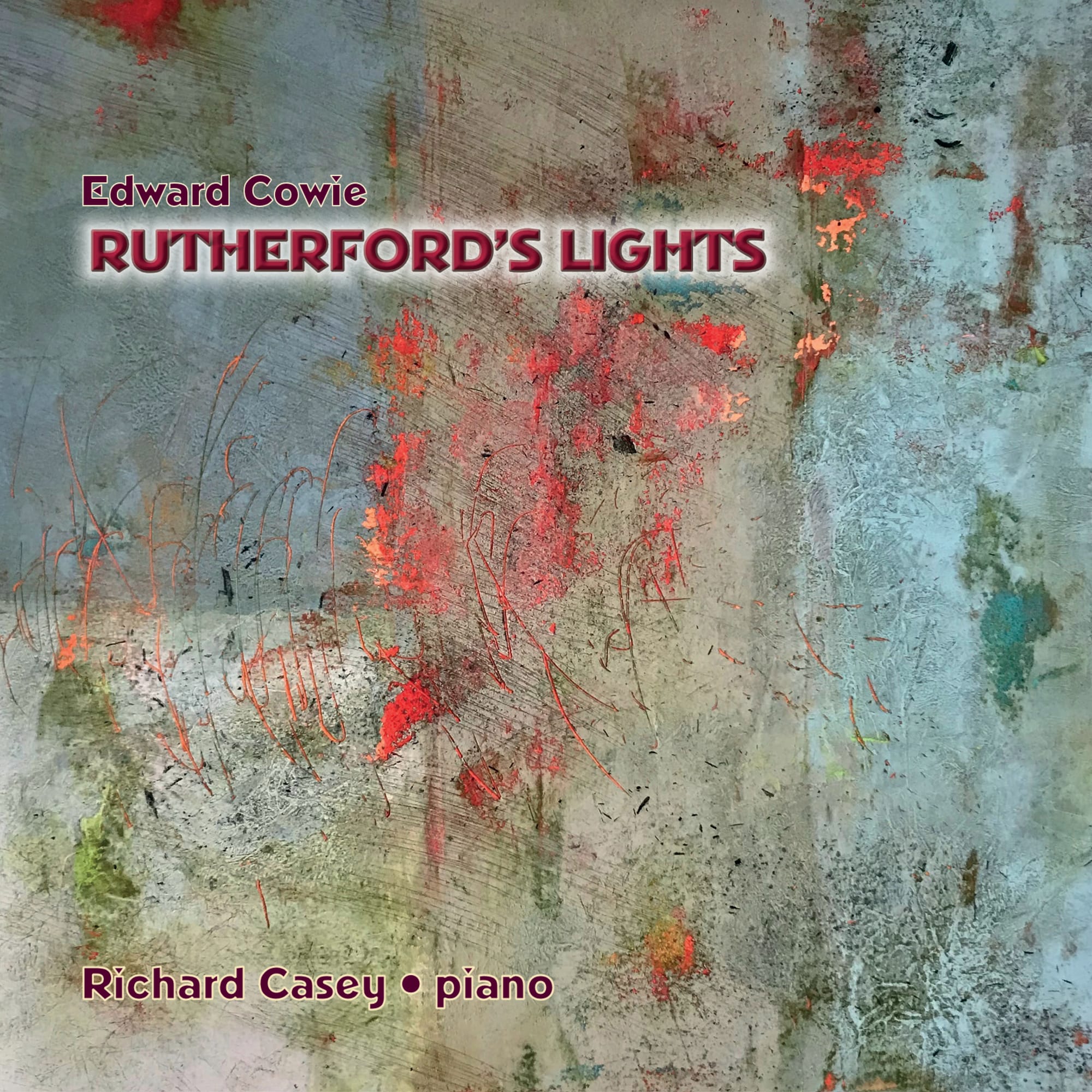
This is Edward Cowie‘s 80th birthday year, and Métier as a number of new recordings are in progress, including the third volume in the Bird Portraits series, and music for string quartets and other chamber groupings.
But I wonder if this is the crowning glory? Métier is also licensing a few recordings from the University of Hertfordshire which produced the UHR label some years ago. One of these is Rutherford’s Lights, a piano cycle by Cowie, played by Richard Casey.
At the heart of this is the physicist Ernest Rutherford (1871-1937); the composer came across a copy of another physics book in a second hand bookshop, Thomas Preston’s The Theory of Light, published in 1901 (the text of that volume can be viewed for free via the Welcome Collection’s website here). Inside Peston’s book was a plate announcing a prize in maths to a University of Manchester student, signed by Nobel Prize winner, physicist Ernest Rutherford. This is the other elliptical reasoning behind the title (which Cowie himself in his booklet notes admits is “a little confusing”).
This is, therefore, an epic cycle of 24 studies for solo piano exploring the wonders of light in many states and forms from Simple Wave Motion to Dispersion and Radiation of Electromagnetic Waves. Himself an ex-student of physics, Cowie collaborated with Light Physicist Sir Michael Berry FRS in ‘an adventure in illuminations, colours and photons!’ The work was commissioned by The Institute of Physics in London, England and premiered and then recorded in 2010.
Here’s Edward Cowie himself introducing the work:
Rutherford’s Lights begins with “Wave Motion,” which we can also use to introduce Cowie’s music, as his voice is absolutely consistent throughout this 80-minute piece.
This consistency of expression enables a certain immersion on the part of the listener, similar to what I for one experience when listening to a complete Messiaen Vingt Régards de l’enfant Jésus. Cowie’s music has delicacy and beauty as its connecting thread, though, and Messiaen’s fearsome outburst are rare indeed. Once an hear a strength though in the sixth movement, “Reflection of any Wave on any Surface”:
Silence forms a real part of Cowie’s vocabulary (movement 10, “Limit to the Number of Fringes”), which, in combination with Richard Casey’s eminently sensitive playing throughout, puts the emphasis on the beauty of Cowie’s harmonies and the delicacy of his lines. It’s as if he is pointing out the beauty of physics, and of the very act of thought about the topic of physics:
Both movements 12 (“Rings with a White Centre”) and 17 (“Elliptical Polarisation”) include delicate traceries:
I would go as far as to say this is one of the great piano cycles, and is certainly one of the most significant piano statements of the 21st century so far.
Let’s end with a video – of Casey playing the 18th movement, “Natural Light”:
Actually, for all of the background in science, is the sheer beauty of this that is so captivating, a beauty that is underlined by Casey’s fine pianism.
This is a re-release of the original 2010 recording, released at that time on the UHR label; it is the first full issue of the recording in digital form, as UHR original having was a limited CD release only.
This disc may be purchased at Amazon here. At £19.96 for a single CD that might seem expensive, but this is maximally rewarding music…









